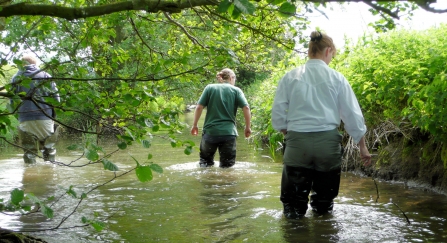
Water vole surveying by Karen Lloyd
(WB) Firstly, what volunteering role(s) do you undertake with BBOWT?
(SD) I was a BBOWT trainee, which is a 12-month unpaid role, surveying habitats and species on the reserves.
What brought you to volunteering BBOWT?
I don’t live in the BBOWT area, I live in Hampshire, and I was looking to change my career. I think it was advertised through one of the ecology websites. I found out about it a few years ago but there were no opportunities at that time. Then in January 2023, I went on the BBOWT website, and they were asking for applications and an I applied.

